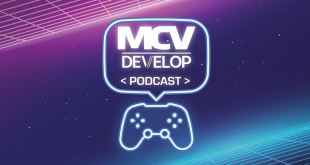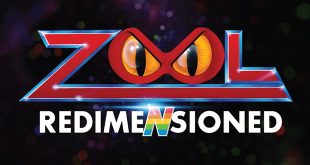 by Nicholas Gilot, co-CEO of the Ultra.io gaming hub
by Nicholas Gilot, co-CEO of the Ultra.io gaming hub
Nicholas Gilot, co-CEO of the Ultra.io gaming hub, insists there’s considerable interest in secondary digital games sales and publishers don’t ever have to lose out.
The UK was once home to a vibrant preowned games market. According to Kantar, this was worth £123 million in 2015, but by 2022, the research firm reported the market’s value at £21.3 million, a fall of approximately 83%. The obvious primary culprit for this decline is the rising prominence of digital marketplaces across PC and console – accelerated by the global pandemic – with many consumers now exclusively buying digital versions of games.
GFK Entertainment claims that the overall boxed games market in the UK was worth £489 million in 2022. For comparison, Omdia valued digital PC sales at £660 million and digital console sales at £1.98 billion. With the latest generation of consoles offering diskless versions at cheaper price points and physical releases increasingly limited to major publishers and franchises, boxed games are now an endangered species.
The rise of digital means publishers can enjoy a simplified, more profitable distribution model with fewer middlemen. Consumers, too, are clearly on board with the trend. But it does throw up some thorny issues around how we play and collect video games – and whether we now own them at all – that mean a secondary market for digital games is a concept that needs to be explored.
PRE-OWNED CRASH
As digital becomes the chosen point of purchase for the vast majority of gamers, its convenience comes at the cost of ownership. Digital software can’t be resold or traded in, with players purchasing a licence to play a game rather than the game itself – effectively loaning it from the seller. This situation has numerous parallels in the worlds of TV, film and music and means there is no pre-owned market of any significance for digital games.
Consumer rights around digital purchases have been a battleground in the PC gaming space for years, with ongoing battles for consumers to get the same protections they do when purchasing physical goods from retailers. Despite this, today’s gamers still don’t get the full benefits that come with genuine ownership.
A lot of this boils down to the historically fraught relationship between the games industry and retailers around sales of pre-owned titles. One developer even suggested to this magazine that pre-owned games are a bigger problem than piracy.
This, of course, is largely due to publishers historically receiving nothing from second-hand sales, while retailers were able to profit significantly.

UNCHAINING DIGITAL OWNERSHIP
A digital marketplace needn’t retain or replicate the pitfalls of the physical one, even in a world where gamers are permitted to actually own the games they pay for. It ‘simply’ needs to fuse ownership of digital games with ways for publishers to generate meaningful revenue from pre-owned sales.
Better still, even implement systems that allow them to set the parameters of how this works – something Ultra is currently pioneering. While in purely economic terms nothing can match the direct sale of a full-price digital game licence to a player, the benefits for the entire gaming ecosystem could outweigh the risks. If consumers can sell titles they’ve completed or no longer want, they can free up cash to spend on other game purchases. Creating a cheaper price point (subject to limited availability), the marketplace at large can open up to more consumers who may not have the means to consistently buy new, premium releases throughout the year. This favours indie and mid-size publishers who don’t necessarily have the resources to create and maintain liveservice ‘forever games’ which can be sustained with battle passes and IAPs.
A digital pre-owned games marketplace should be handled with care, of course. A space that significantly devalues games is in nobody’s best interest. But with some controls in place, such as the option to choose a minimum resale price and what cut the publisher takes on the resale, the number of a specific title that can be resold, what period a title can be sold in, and which geos it can be sold to and from, developers can have a say over how this part of the market can operate profitably for them.
A COLLECTOR’S ITEM
Debates over the secondary market in video games cut to the very heart of who we, as an industry, want to be. As digitisation rises and the things we buy become less tangible, we’ve seen huge rises in collecting games and game-related IP such as Pokémon cards. Video games are art, they’re culture, they’re moments in time. They deserve to live on in more than memory and data centres in walled gardens.
We can draw a parallel here with the music industry, where physical records have seen a monumental comeback. Previously a niche collector’s item, they have boomed in popularity to the point that artists such as Taylor Swift have released vinyl editions of their latest albums. For me, the return of music on vinyl can be interpreted as a recognition of the value of the art form, the need to support artists and, to a lesser extent, a rejection of the way we’re constantly bombarded with the same earworm music all day everyday. In the gaming world, the equivalent is supporting our favourite developers, collecting our favourite titles and IPs, and taking a minute to enjoy an indie game rather than grinding to keep up with the meta in the latest live-service juggernaut.
It’s likely, then, that publishers will continue to produce physical items in some form, for example special edition boxed games and memorabilia. But we need to consider how a regular gamer can also curate their digital libraries without fear of losing them. Currently, when you die, your Steam account goes back to Valve. Closures of digital stores such as Wii U and 3DS mean that those games can never be sold again and are locked into individual accounts forever. Failing to cater to collectors in our digital world would be a monumental failure by the gaming community.
In years to come, the lack of digital ownership will come to be seen as an archaic practice, just like the 30% revenue share taken by platform holders has in recent years. A digital pre-owned marketplace would be pro-consumer, while also offering benefits for publishers, in a transparent manner for all. It’s time to create a new standard for digital games stores that brings them into the next generation while retaining what we all love so much about video games.

 MCV/DEVELOP News, events, research and jobs from the games industry
MCV/DEVELOP News, events, research and jobs from the games industry




